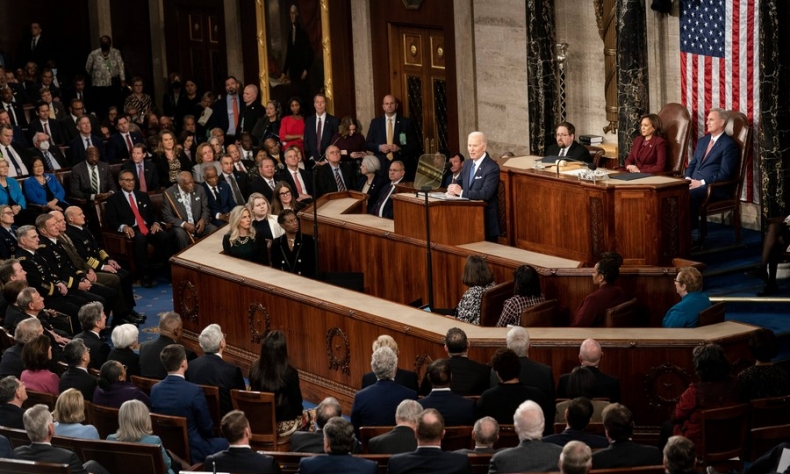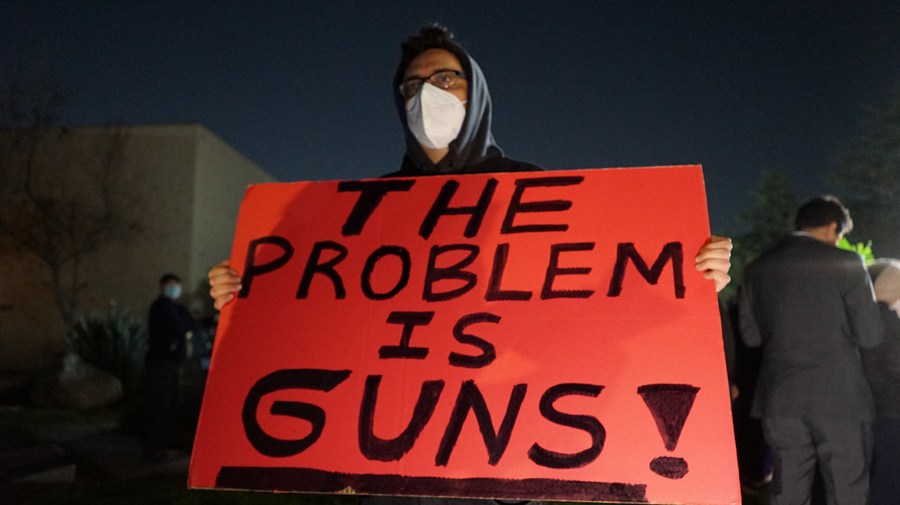All Style, No Substance

The gulf between the interests of ordinary people and the American elite continues to grow regardless of the political party occupying the halls of Washington. An equally wide gap exists between the American commitment to unipolar hegemony and the interests of humanity.
U.S. President Joe Biden presented the State of the Union (SOTU) address on February 7, his third major speech since assuming office in January 2021. It occurred within the context of a turbulent political climate and an upcoming presidential election cycle in 2024. The Republican Party gained control of the House of Representatives during the 2022 midterm elections. Inflation has outpaced wages and the standard of living in the U.S. is declining. The combination of mass shootings, police violence and an aggressive foreign policy has reduced American prestige around the world and placed further pressure on Biden to communicate confidence amid crisis.
Biden’s SOTU address was a carefully crafted campaign speech meant to drum up support for a 2024 presidential bid. The speech highlighted his alleged accomplishments and proposed several areas where more needed to be done for the American people. Healthcare, gun control, jobs and several other key policy areas were stressed in order to convey the message that the Biden administration was doing its best to improve life in the U.S. The parents of Tyre Nichols, the 29-year-old black American killed by Memphis police in early January, were honored at the address. As was Brandon Tsay, the computer programmer who had disarmed the Monterey Park mass shooter that same month.
These gestures play on emotions but do not change the fact that Biden’s White House has done little to change the status quo of U.S. politics. In fact, Biden’s administration has promoted and enacted the very policies that exacerbate police violence and mass shootings.
U.S. police departments kill more than 1,000 people per year according to data compiled by independent journalists. Yet police officers are rarely charged with the crimes they commit on or off duty. A wide gulf remains between the public perception of police violence and how it is treated in court.
Less than 1 percent of police officers who have used lethal force are prosecuted, let alone convicted in a court of law. The Department of Justice has been criticized for failing to act against, or even keep track of, police violence.

Mass shootings in the U.S. are another example of a problem that received attention in Biden’s SOTU address without much substance to back it up. Biden has long pressed for an assault weapons ban, despite the political odds. His position on the matter has sparked heated debate with Republicans but thus far garnered little policy change. While gun ownership certainly plays a role in gun violence, the root of the problem resides in the social, political and economic forces. Wage stagnation, a distrust of government institutions and a culture of violence that fuels the profits of weapons manufacturers also play a role in the American gun problem. The U.S. is a nation perpetually at war and has provided more than $100 billion in arms and military assistance to Ukraine over the past year alone to intensify its aggressive stance toward Russia.
In other words, a large gap exists between what Biden’s SOTU address stated and what the administration is delivering in concrete policy terms. Honoring individuals impacted by police violence and mass shootings is a nice gesture but nothing more. However, it is not uncommon for U.S. politicians to emphasize values, ideals and personalities over the difficult work of making serious changes that benefit ordinary people. Deflection and distraction have become important elements in protecting these interests and the lack of substance in Biden’s SOTU address must be placed in this context.
Although the SOTU address paid little attention to foreign policy, Biden took a defiant stance toward China, naming the country not only a competitor, but also a possible “threat” to U.S. sovereignty.
Biden’s emphasis on the so-called “China threat” distracts the American public from the very real dangers of the American military, economic and diplomatic aggression toward China. American citizens are led to believe China is the “enemy,” further reducing the political will necessary to address domestic issues. Finally, Biden’s “tough on China” rhetoric only exacerbates the anti-China and anti-Asian violence in the U.S. which has worsened since the emergence of the COVID-19 pandemic.
Biden’s latest SOTU address is a reflection of the storm clouds gathering over the social order in the U.S. The gulf between the interests of ordinary people and the American elite continues to grow regardless of the political party occupying the halls of Washington. An equally wide gap exists between the American commitment to unipolar hegemony and the interests of humanity. Biden’s speech did not inspire confidence that the U.S. will play a positive role in resolving these contradictions, now or in the future.
The author is an independent journalist and political analyst for The Left Lens YouTube channel and co-editor of the Friends of Socialist China website.
 Facebook
Facebook
 Twitter
Twitter
 Linkedin
Linkedin
 Google +
Google +










